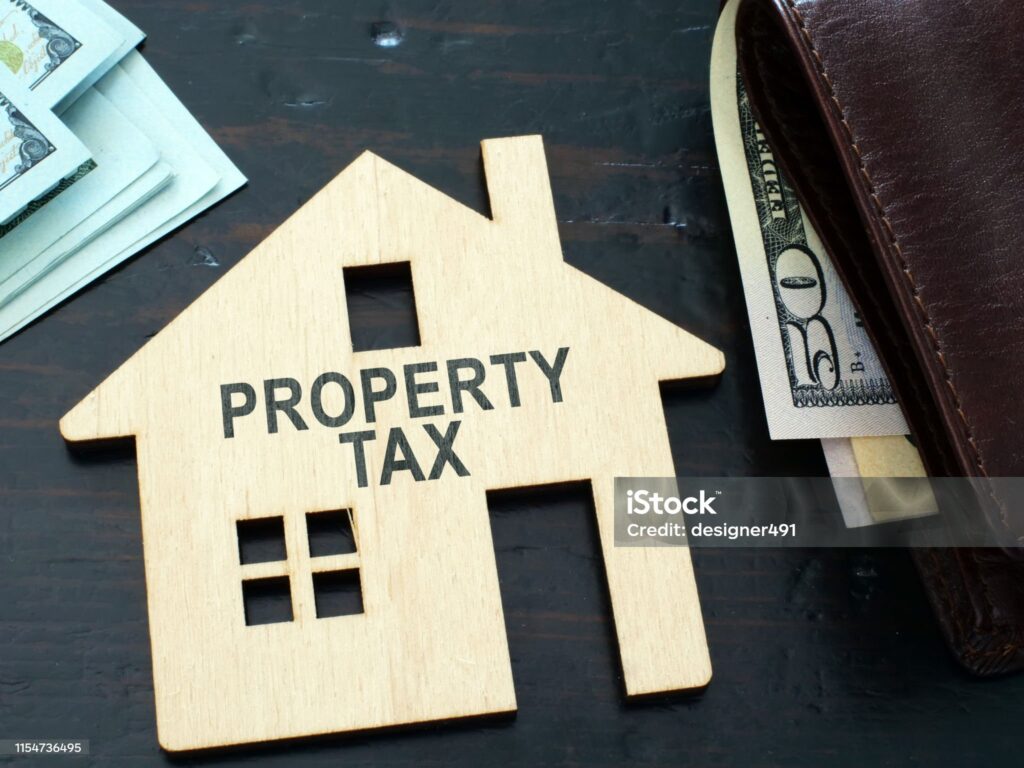Property taxation in Kenya entails capital gains tax and stamp duty for property transfer and rental income tax for income-generating properties.
Real estate is a preferred investment due to stable returns that are not highly affected by fluctuations in market performance. However, to make it a successful venture, an investor must understand the prevailing government laws on taxation. This article looks at the different types of taxation in Kenya for real estate.
Most real estate investments in Kenya are residential and commercial. They are both lucrative businesses that earn investors rental income while building equity.
Table of Contents
Investing in real estate in Kenya is a lucrative venture, with promising returns from both property appreciation and rental income. However, understanding the taxation landscape is crucial to ensure compliance and optimize your investment. This comprehensive guide by Dennkarm Prime Properties will walk you through the types of taxation applicable to real estate investors in Kenya, helping you navigate this complex terrain effectively.
1. How Is Real Estate Taxed in Kenya?
Capital Gains Tax (CGT)

What is Capital Gains Tax?
Capital Gains Tax (CGT) is levied on the profit made from the sale of a property. In Kenya, CGT is administered by the Kenya Revenue Authority (KRA) and is currently set at 5% of the net gain. The net gain is calculated by subtracting the acquisition cost and any improvement costs from the sale price.
How to Calculate CGT
To illustrate, let’s assume you bought a plot in Thigio, Kikuyu for KSh 2,000,000 and sold it later for KSh 3,000,000. The net gain would be KSh 1,000,000, and the CGT payable would be 5% of this amount, which is KSh 50,000.
Exemptions and Reliefs
Certain transactions are exempt from CGT, including transfers between spouses, transfers made as part of a divorce settlement, and inheritance. Additionally, reliefs may be granted for certain costs associated with the improvement of the property.
Compliance and Payment
CGT must be paid within 30 days of the property transfer. Failure to comply can result in penalties and interest. It’s advisable to engage a tax consultant to ensure accurate calculation and timely payment.
For more detailed information on CGT, visit the Kenya Revenue Authority website.
READ ALSO: Capital Gains Now at 15%: What it Means For Property Sellers
Stamp Duty Tax

What is Stamp Duty?
Stamp Duty is a tax levied on legal documents when transferring property ownership. The rate varies depending on the location and type of property. In urban areas, the rate is 4% of the property value, while in rural areas, it is 2%.
How to Calculate Stamp Duty
For example, if you purchase a plot in Thigio, Kikuyu valued at KSh 2,000,000, the Stamp Duty payable would be 4% of this amount, which is KSh 80,000.
Exemptions and Reliefs
Certain transactions may be exempt from Stamp Duty, such as transfers to immediate family members. Additionally, first-time homebuyers may be eligible for relief.
Compliance and Payment
Stamp Duty must be paid before the property transfer can be registered. Failure to pay on time can result in fines and interest charges.
For more information on Stamp Duty, refer to the Ministry of Lands and Physical Planning.
Rental Income Tax

What is Rental Income Tax?
Rental Income Tax is levied on income earned from renting out property. In Kenya, landlords can choose between two taxation regimes: the Residential Rental Income Tax and the Normal Income Tax.
Residential Rental Income Tax
This is a simplified tax regime for landlords earning rental income between KSh 288,000 and KSh 15 million annually. The tax rate is 10% of the gross rental income, and it’s payable monthly.
Normal Income Tax
For landlords earning above KSh 15 million or those with commercial properties, the rental income is taxed under the normal income tax regime. The rental income is added to other income sources and taxed at the applicable individual or corporate tax rates.
Compliance and Payment
Landlords must file their rental income tax returns monthly or annually, depending on the regime chosen. Accurate record-keeping of all rental income and expenses is crucial for compliance.
To learn more about Rental Income Tax, visit the KRA Rental Income Tax Guide.
READ ALSO: A complete guide to investing in rental property in Kenya
Real estate taxes is a broad and sensitive topic that most people in Kenya are not aware of. Here are some of the commonly asked questions and answers that you need to know.
2. FAQs
What happens if I don’t pay my real estate taxes on time?
Failure to pay real estate taxes on time can result in penalties, interest, and legal action. It is crucial to adhere to all tax deadlines and seek professional advice if needed.
Are there any tax incentives for real estate investors in Kenya?
Yes, the Kenyan government offers various tax incentives to real estate investors, including capital allowances for improvements and tax reliefs for certain transactions. Consult a tax expert to explore all available incentives.
How can I ensure that I am compliant with all real estate tax obligations?
Engage the services of a qualified tax consultant or legal advisor who specializes in real estate. They can help you navigate the tax requirements and ensure full compliance.
Can foreigners invest in real estate in Kenya and what are their tax obligations?
Foreigners can invest in real estate in Kenya, subject to certain restrictions on land ownership. They are subject to the same tax obligations as Kenyan citizens.
What are the real estate taxes in Kenya?
There are three major types of taxation in Kenya that real estate investors must understand. They include capital gains tax, stamp duty tax, and rental income tax.
What is the CGT tax in Kenya?
Capital Gains Tax is the tax charged on the gain accrued upon the transfer of property situated in Kenya. It is paid by the individual or company transferring the property.
How much is capital gains tax on real estate in Kenya?
The rate of Capital Gains Tax is 15% of the net gain from the property transferred. The net gain is the difference between the net transfer value (transfer value minus incidental costs) and the net adjusted cost (acquisition cost + incidental costs on acquisition + property enhancement costs).
What is the tax on rental income in Kenya?
Tax on rental income is called rental income tax and can be residential or commercial. It is payable by landlords when they receive rent from tenants.
How much tax do landlords pay in Kenya?
Landlords receiving rental income of between Ksh.288,000 and Ksh15 million per year are charged a 10% rate on monthly gross rent. If the gross annual income from commercial, residential, or combined tenants is more than Ksh15 million, the income is treated as commercial rental income. Landlords are then subject to 30% Corporate Tax or be taxed on an individual graduated scale.
For more detailed answers to your tax-related questions, visit the Kenya Revenue Authority FAQs.

3. In Conclusion
Understanding the different types of taxation applicable to real estate investments in Kenya is crucial for maximizing returns and ensuring compliance. Whether you are dealing with Capital Gains Tax, Stamp Duty, or Rental Income Tax, staying informed and seeking professional advice can make all the difference.
Apart from the mandatory payment of types of taxation in Kenya, there are other levies and rates that real estate investors should pay. They include land rates payable to the county governments and land rent payable to the Ministry of Lands and Physical Planning.
Rental property in Kenya is a lucrative investment that allows you to earn passive income. However, like many other revenue-generating ventures, it does not come without risks. Check the BuyRentKenya guide for more to help you make sound rental investments.
READ ALSO: What to Know About Property Laws in Kenya
Additional Tips for Real Estate Investors
Conduct Thorough Due Diligence
Before purchasing any property, ensure that you perform thorough due diligence. This includes:
- Title Search: Verify that the property has a clean title and is free from encumbrances.
- Zoning Regulations: Ensure the property is zoned for your intended use.
- Survey: Conduct a survey to confirm the property’s boundaries and size.
Engage Professional Services
Engage the services of qualified professionals, including real estate agents, lawyers, and tax consultants. They can provide invaluable advice and help you navigate the complex real estate landscape.
Financial Planning
Proper financial planning is essential for real estate investment:
- Budgeting: Create a budget that includes all potential expenses, including taxes.
- Emergency Fund: Maintain an emergency fund to cover unforeseen costs.
Why Choose Dennkarm Prime Properties
At Dennkarm Prime Properties, we are committed to providing our clients with reliable and transparent real estate services. Our plots in Thigio, Kikuyu, are strategically located in prime areas with great potential for appreciation. By choosing us, you benefit from:
- Transparent Transactions: We ensure all transactions are clear and above board, minimizing the risk of real estate scams.
- Professional Guidance: Our experienced team provides comprehensive support throughout the land acquisition process.
- Prime Locations: Our properties are situated in desirable locations with promising growth prospects.
For more personalized advice and property listings, visit Dennkarm Prime Properties. Secure your future by investing wisely and safely in Kenya’s vibrant real estate market.





